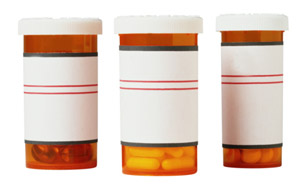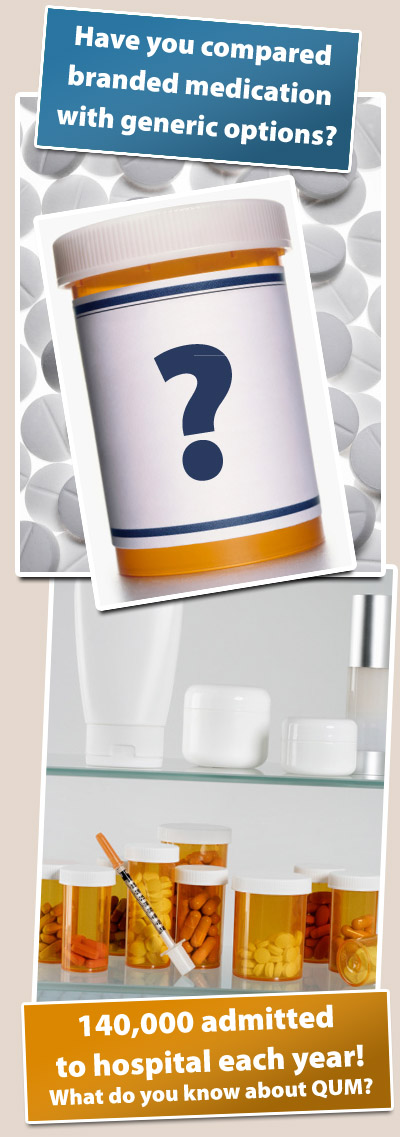What is a generic medicine?
A generic medicine is an alternative brand of a medicine that has been on the market for many years. For a generic medicine to be approved for sale, it must contain the same active ingredient; in the same dose and strength; have the same onset of action; stay in the body for the same amount of time; and work in the same way as its brand name equivalent.
The government, through the Therapeutic Goods Administration (TGA), applies the same strict regulatory criteria to the generic medicine as are applied to the originator brand, ensuring its safety, efficacy and quality is to high standards. Generic medicines are therefore considered to be interchangeable with the brand equivalent without compromising patient care.
Are there any differences in the quality of their ingredients?
All ingredients – active or inactive – in any medicine, be it expensive brand or generic, must be evaluated for quality, safety and efficacy, and approved for sale by the TGA before introduction into the market, and regularly thereafter.
Why are branded medicines more expensive than generic medicines?
When a medicine is discovered, the company that develops it may apply for a patent. The patent provides the company with a competition-free period of up to 25 years, to allow it to recover research and development costs and profit from the discovery. A generic medicine can enter the market when this patent has expired. Generic medicines are less expensive because the manufacturers don't have the initial investment costs of the developing company.
Further, when generic medicines enter the market, there is greater competition, which can bring prices down. The government also subsidises medicines through the Pharmaceutical Benefits Scheme (PBS).
WHAT IS A GENERIC MEDICINE AND IS IT AS GOOD AS THE ORIGINAL BRAND?
(Click to watch the video on the right) |
 |
What is QUM? - (Quality Use of Medicines)
Quality use of medicines (QUM) is one of the central objectives of Australia's National Medicines Policy.
QUM can mean using more or less of a medicine or none at all. It can include prescription, over-the-counter, vitamin, herbal and natural medicines. It can have different meanings for different people:
■ For an individual, it means using (or not using) medicines appropriately, safely and effectively and having the knowledge and tools to do so
■ For health professionals, it means:
■ For providers of health services and products, it means contributing to best practice through appropriate information, education and promotional activities
■ For governments, it means developing public policy, health systems, regulation and education that support best medicines use
■ For the media, it means reporting issues around use of medicines accurately and responsibly
Why is QUM important?
Medicines are a part of most people's lives. In any fortnight, around 7 in 10 Australians (and 9 in 10 older Australians) will have taken at least one medicine.
While there is no doubt that taking medicines saves lives and is often the most cost-effective or convenient form of treatment, it is also well-established that some medicines are inappropriately prescribed and used.
Studies have shown that more than 140,000 Australians are admitted to hospital every year as a result of problems with the use of medicines, including adverse reactions.
In addition, Australia's expenditure on medicines from government spending on the Pharmaceutical Benefits Schedule (PBS) needs to reflect appropriate medicine use if we are to sustain a viable health system into the future. QUM is about ensuring that all Australians have equitable access to high quality, safe and effective medicines. It also relies on rational use of those medicines. |






















